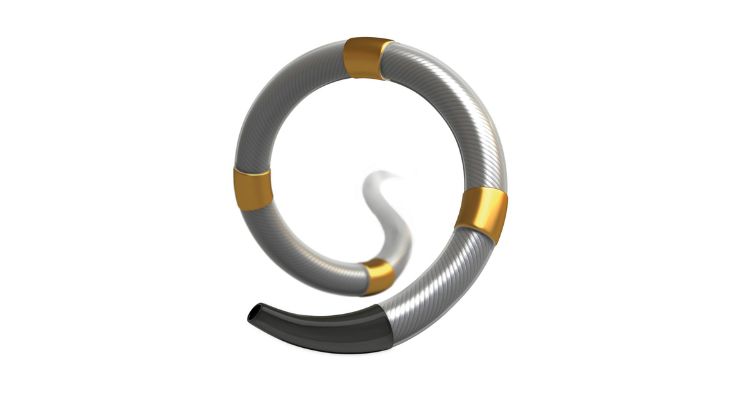Sam Brusco, Associate Editor11.20.23
Medtronic has gained U.S. Food and Drug Administration (FDA) approval for Symplicity Spyral, a renal denervation (RDN) system—also known as the Symplicity blood pressure procedure—to treat hypertension.
The company immediately began commercialization.
"Medtronic has always believed in the potential of this therapy. We partnered closely with leading experts in our clinical community who could help us in our journey to get this technology to the people who need it most," Jason Weidman, senior VP and president of Medtronic’s Coronary and Renal Denervation business, told the press. "It was the promise of this therapy that enabled Medtronic to keep going, even when others exited the renal denervation space. High blood pressure is a global health issue, and patients need more options to manage their blood pressure. The approval of the Symplicity blood pressure procedure represents a significant milestone for physicians and patients in the treatment of hypertension."
Symplicity is a minimally invasive procedure that delivers radiofrequency energy to nerves around the kidneys that can become overactive and contribute to hypertension. After sedation, a catheter is inserted into the artery leading to the kidney. Once in place, energy is administered to the system to calm the excessive activity of the nerves connected to the kidney.
The tube is then removed, with no implant left behind.
"The Symplicity blood pressure procedure is safe and effective, providing significant 'always on' blood pressure reductions for patients," said David Kandzari, MD, chief, Piedmont Heart Institute and Cardiovascular Service and co-principal investigator of the SPYRAL clinical program. "This landmark approval is the culmination of rigorous scientific study and clinical trials, including long-term, sham-controlled studies in the presence and absence of medication, and the largest real-world study."
According to results from a Medtronic-led patient preference study, when presented with an interventional treatment with blood pressure reduction and potential risks in line with those of the Symplicity blood pressure procedure, approximately one third of patients were likely to choose the interventional treatment.
Earlier this month, Recor Medical gained FDA approval for a similar technology, its ultrasound renal denervation (uRDN) system to treat hypertension.
The company immediately began commercialization.
"Medtronic has always believed in the potential of this therapy. We partnered closely with leading experts in our clinical community who could help us in our journey to get this technology to the people who need it most," Jason Weidman, senior VP and president of Medtronic’s Coronary and Renal Denervation business, told the press. "It was the promise of this therapy that enabled Medtronic to keep going, even when others exited the renal denervation space. High blood pressure is a global health issue, and patients need more options to manage their blood pressure. The approval of the Symplicity blood pressure procedure represents a significant milestone for physicians and patients in the treatment of hypertension."
Symplicity is a minimally invasive procedure that delivers radiofrequency energy to nerves around the kidneys that can become overactive and contribute to hypertension. After sedation, a catheter is inserted into the artery leading to the kidney. Once in place, energy is administered to the system to calm the excessive activity of the nerves connected to the kidney.
The tube is then removed, with no implant left behind.
"The Symplicity blood pressure procedure is safe and effective, providing significant 'always on' blood pressure reductions for patients," said David Kandzari, MD, chief, Piedmont Heart Institute and Cardiovascular Service and co-principal investigator of the SPYRAL clinical program. "This landmark approval is the culmination of rigorous scientific study and clinical trials, including long-term, sham-controlled studies in the presence and absence of medication, and the largest real-world study."
According to results from a Medtronic-led patient preference study, when presented with an interventional treatment with blood pressure reduction and potential risks in line with those of the Symplicity blood pressure procedure, approximately one third of patients were likely to choose the interventional treatment.
Earlier this month, Recor Medical gained FDA approval for a similar technology, its ultrasound renal denervation (uRDN) system to treat hypertension.













